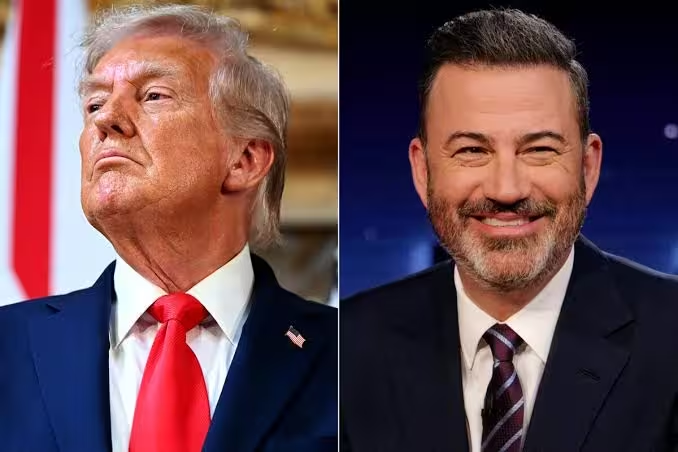5 Minutes
Kimmel’s comeback: jokes, ratings and a presidential rant
When Jimmy Kimmel returned to the desk of Jimmy Kimmel Live! this week, he picked up exactly where late-night often does: in the crosshairs of politics and ratings. The ABC host used his opening monologue to mock a Truth Social post from former President Donald Trump — and to predict the next dramatic beat in the saga: “He’ll try to sue ABC.”
Kimmel’s return coincided with a notable spike in viewers. The show pulled in roughly 6.26 million viewers on Tuesday night, an encouraging number for a program that had been temporarily preempted amid network scrutiny. Yet nearly a quarter of U.S. households (via affiliates including Nexstar and Sinclair) were still not airing the show, a reminder of how local broadcast decisions can complicate TV metrics.
From monologue to courtroom quips
Kimmel’s routine blended classic late-night barbs with topical digs. He mocked Trump’s own obsession with ratings — “Has anyone ever been fired for bad ratings on a Wednesday?” — and lampooned the idea that Trump would prove he wasn’t threatening ABC by threatening ABC. Kimmel’s punchlines referenced cultural touchstones (a fake bench trial with “Judge Steve Harvey”) and leaned heavily on an old-school bully-versus-underdog framing: “He’s an old-fashioned 80s movie style bully,” Kimmel said, explaining why he keeps returning to Trump in his bits.
Trump’s Truth Social response accused ABC of reinstating a host with “bad ratings” and framed Kimmel as partisan, even promising to “test ABC” legally. The back-and-forth rekindles an old late-night ritual — comedians and politicians trading jabs in public — but it also raises real industry questions about broadcast standards, advertiser pressure and FCC oversight.
Industry context: free speech, FCC warnings and affiliate preemptions
ABC temporarily preempted Kimmel after the network said it pulled the show “indefinitely” following an FCC warning tied to remarks Kimmel made about Charlie Kirk, who was tragically killed in early September. The network’s move drew swift criticism from press freedom advocates who argued the preemption bordered on censorship. At the same time, local affiliates such as Nexstar and Sinclair exercised their editorial control and continued preemptions, showing how modern broadcasting remains decentralized.

For viewers and industry watchers, the episode is a case study in how late-night TV functions as both entertainment and a public forum. Networks must balance protecting talent, appeasing advertisers, and navigating regulatory guidance — a tricky tightrope when a sitting or former president is publicly denouncing a show.
How this compares to past late-night spats
This feud follows a long lineage of televised clashes. Think of the Colbert Report’s parodies of political figures or the way Jay Leno and David Letterman once traded barbs with politicians. Unlike scripted drama, late-night is improvisational and immediate, and its cultural impact is amplified by social platforms where clips and rants ricochet within minutes.
Moreover, the showdown feels different from a typical ratings story. Trump’s attacks are political and performative; Kimmel’s responses are crafted for television rhythm and viral replay. The result is a hybrid spectacle: part media controversy, part variety show.
"Late-night hosts have always been cultural barometers," says film critic Anna Kovacs. "Kimmel’s exchange with Trump is less about personal vendetta than about how comedians translate political theater into television comedy. It’s also a reminder that TV still matters in a streaming-first age."
Audience and cultural reception
Audiences were clearly engaged: social chatter spiked after the episode, and clips circulated widely. Critics remain split. Some argue ABC caved to regulatory fear when it pulled the show; others say networks must act cautiously when content intersects with sensitive, real-world violence and public safety.
For cinephiles and TV fans, the episode is worth watching less for its legal posturing than for how it reflects the evolving relationship between entertainment, politics and platform power. Kimmel’s return underscores that late-night remains a theatrical space — quick on jokes, heavy on symbolism, and always chasing the next viral angle.
In the end, whether Trump follows through with legal threats or the controversy simply fuels more clips and ratings, one thing is clear: the late-night stage is still central to how America watches and argues about itself.
Source: deadline


Leave a Comment